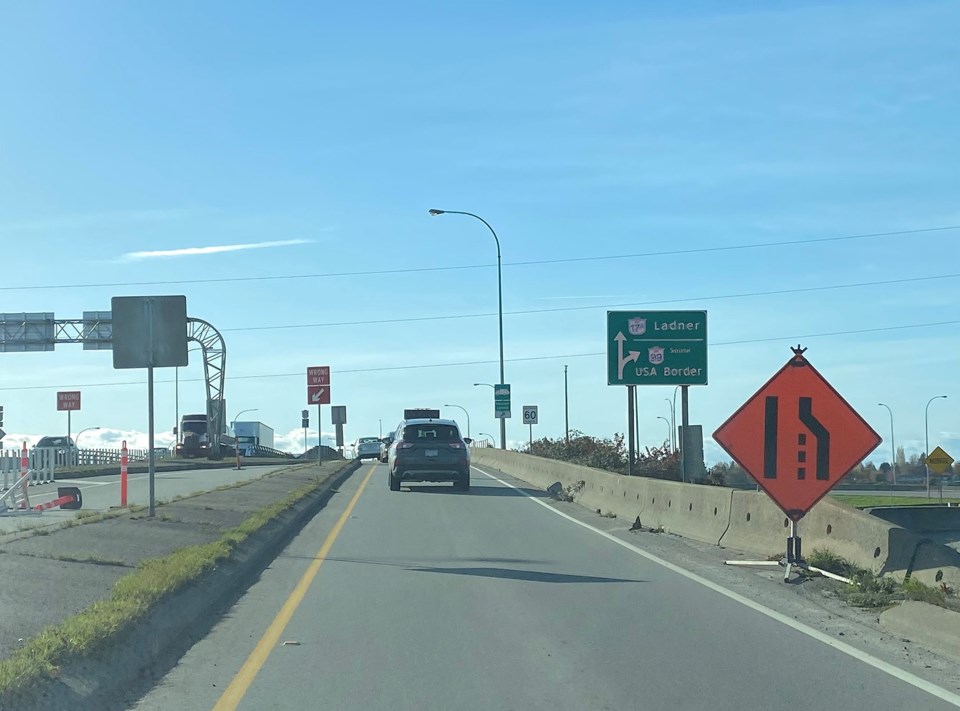The company involved in last summer’s crash that damaged the Hwy. 17A overpass on Hwy. 99 has been fined a total of $2,002.
Bright Sky Disposal Ltd. was issued the violation tickets totalling that amount, the Ministry of Transportation and Infrastructure told the Optimist.
The ministry will also work through its claims division with the vehicle operator’s insurer, to maximize recovery of repair costs, said the ministry. However, no dollar amount associated with that process was provided.
The overpass was damaged July 18 when a truck southbound on Hwy. 99 hit the underside of the Hwy. 17A structure. The cause of the accident was listed as, “driver error/failed to secure bin properly,” according to the ministry’s Commercial Vehicle Bridge/Overpass Crash Report.
The company also voluntarily surrendered its safety certificate.
The incident resulted in the closure of the southbound lanes for several days, shutting down access to Ladner and Tsawwassen from that point.
Repairs to the overpass began on Monday at a cost of $1.7 million, and will take about two months to complete.
Transportation minister writes to Ottawa
The issue of trucking safety has sa国际传媒’s transportation minister asking the federal government to help by making it possible to enforce measures across provincial borders.
“Collaboration between all levels of government is necessary to hold these organizations accountable across all Canadian jurisdictions,” Minister of Transportation and Infrastructure Rob Fleming said in a Jan. 8 letter to his federal counterpart.
Fleming wrote to federal Minister of Transport Pablo Rodriguez saying that because safety certificates are not connected, “a suspension or a cancellation of a carrier’s safety certificate in one jurisdiction does not affect their operations based in another jurisdiction.”
“Depending on the legislated or regulatory authority in the other jurisdiction, the other jurisdiction may not have sufficient cause or authority to pursue a similar course of actions for the vehicles plated in their jurisdiction, even if they agree with the enforcement action taken elsewhere.
“This leaves a carrier who has had their operations suspended in one jurisdiction free to continue their operations with no change to their safety practices by using vehicles plated in another jurisdiction.”
Fleming said by email that the vast majority of commercial drivers and carriers operate safely and responsibly, “but the few who don’t have a huge impact when they cause costly collisions with infrastructure: they delay commuters, affect the movement of goods and can impede first responders.”
